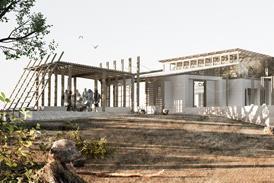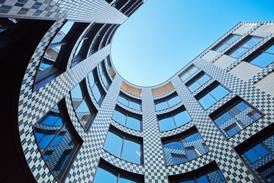- Home
- Intelligence for Architects
- Subscribe
- Jobs
- Events

2025 events calendar Explore now 
Keep up to date
Find out more
- Programmes
- CPD
- More from navigation items
Faulkner Browns unveils ‘truly sustainable sports centre’ for University of Portsmouth

New energy efficient sports facility serves both the univeristy and wider community
Faulkner Browns have completed the Ravelin Sports Centre, a new £57m facility for the University of Portsmouth.
Designed in close collaboration with Max Fordham, the project seeks to act as an exemplar for ultra-low energy sports facilities in the UK.
The multipurpose centre serves both the University of Portsmouth and the wider community, and includes a 25-metre eight-lane swimming pool, an eight-court sports hall, a fitness suite accommodating 175 stations, multifunctional studios, squash courts, and climbing and bouldering facilities.
…
This content is available to registered users | Already registered?Login here
You are not currently logged in.
To continue reading this story, sign up for free guest access
Existing Subscriber? LOGIN
REGISTER for free access on selected stories and sign up for email alerts. You get:
- Up to the minute architecture news from around the UK
- Breaking, daily and weekly e-newsletters
Subscribe to Building Design and you will benefit from:

- Unlimited news
- Reviews of the latest buildings from all corners of the world
- Technical studies
- Full access to all our online archives
- PLUS you will receive a digital copy of WA100 worth over £45
Subscribe now for unlimited access.






